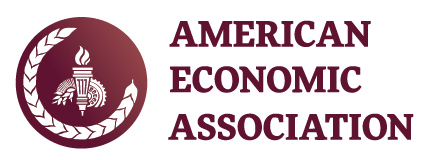Editorial Policy
The International Journal of Banking and Finance, IJBF, serves scholars and practitioners in disseminating their contributions in banking and finance. Such contributions are expected to be original and current or, they should lay a solid foundation for integrating theory and practice in one or more current financial, economic, or social environments. The journal provides a global forum wherein academicians and practitioners share ideas, elucidate practices, and enhance the existing theoretical and practical positions. The journal aims to reach contributors and readerships worldwide and, in particular, those in the developing countries whose needs are currently more acute. The editorial policy encourages and solicits research papers that reflect novel practical or theoretical breakthroughs in banking, finance, and insurance in different financial and economic environments. It is desirable that contributions to the journal reflect a global perspective, account for the dynamics and linkages among the economic systems of which banking, finance, and insurance are significant subsystems. The IJBF seeks and rigorously examines through a careful double-blind peer review process new knowledge and ideas that unify and explain the varied emerging practices in these triple subsystems. The journal hopes to serve as a vehicle for propagation of ideas to this end.
The IJBF follows an anonymously double-blind peer review process. The primary criteria during the review and selection process are sound theoretical basis, valid empirical application and analysis, and contribution to the fields of banking, finance and insurance. The primary criteria in the final selection of the papers are quality, originality, and relevance to the international banking, finance and insurance fields. Since its inception, the IJBF editorial team has worked independently to ensure that the selection of papers follow the rigorous process of initial editorial review followed by the double-blind peer review process.
The editors welcome original works sound in theory and, where relevant, with appropriate methodological refinements at the empirical and non-empirical level in the following subject areas: behavioural economics, corporate finance, financial institutions and markets, financial services, insurance, international economics and trade, international finance, macroeconomics, monetary policy, financial economics, portfolio and security analysis, real estate, ethical finance, money and banking and accounting and financial reporting. The papers that are focused in the broad areas of banking, finance, and insurance are deemed more appropriate in the selection and the double-blind reviewing process.
Editors generally solicit three categories of articles: invited contributions from established scholars and practitioners, blind reviewed articles, and contributions on industry practices. The journal’s Editorial Board members are all internationally-recognised professionals and play significant roles in their respective areas of expertise. The editors strive to maintain a broad coverage of the issues and practices in banking, finance, and insurance. Through this process, the journal will provide a better understanding of how global capital resources are intermediated to secure contemporary economic development and social well-being.
The IJBF Editorial Office endeavours to speed up its double-blind review process and the hard copy printing of each issue on a timely manner. While some papers take a longer time in the review process, there has always been a strong desire not to delay the official publication of the acceptable articles until the printing of each issue is complete, because waiting for printing could further delay publication notice to authors. To serve our contributors in a timely manner, the accepted papers, after preliminary copy-editing, are posted on the journal’s website (https://e-journal.uum.edu.my/index.php/ijbf/index) ahead of the printing schedule. The Editorial Office considers an article published once it is posted on the journal’s website and when the author(s) are also informed. The hard copy issues are generally mailed out at a later date.





















